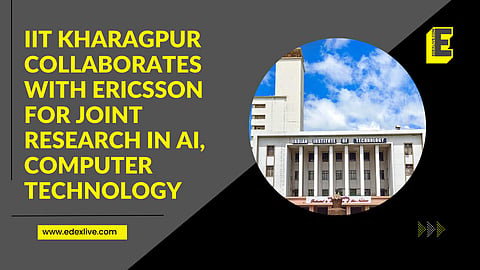

The Indian Institute of Technology (IIT) Kharagpur and Ericsson have forged a significant partnership aimed at advancing research in Artificial Intelligence (AI), computer technology, and radio communication, an IIT Kharagpur spokesperson said today, February 3. Through this long-term cooperation, researchers from both institutions will join forces to delve into AI and distributed computer technology, with a focus on laying the groundwork for 6G networks, the spokesperson added.
The collaboration between IIT Kharagpur and Ericsson involves the signing of two agreements, paving the way for joint research endeavours. Additionally, a recent symposium on radio and network research hosted by the institute provided a platform for leaders from Ericsson Research and IIT Kharagpur to engage in discussions regarding the future of networks and communication.
Speaking on this, director of IIT Kharagpur Professor Virendra Kumar Tewari emphasised the importance of this collaboration in driving technological innovation in India and positioning the country as a leader in the digital realm. Further, he highlighted the potential of 6G networks integrated with AI to facilitate faster and more efficient AI-powered applications, the spokesperson said.
In the realm of 6G research, IIT Kharagpur aims to contribute to various areas, including Radio Access Technology, Core Networks, RF & Device Technologies, and more, she said. Additionally, the institute intends to actively participate in telecommunications standardisation processes, develop test beds, prototypes, and commercialise technologies, while also focusing on training and manpower development, reported PTI.
Head of Ericsson Research, Dr Magnus Frodigh, underscored the significance of the collaboration in reinforcing Ericsson's research and development commitments in India, particularly in the areas of radio, computing, and AI research, he added. He expressed enthusiasm about partnering with IIT Kharagpur and emphasised the potential for transformative research outcomes in both fundamental and translational areas, shaping the future of network platforms, PTI reported.
